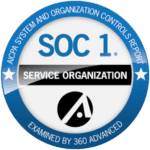Navigating the logistics of freight auditing and payment can be complex, but with best practices in place, companies can ensure accuracy, save money, and operate more efficiently.
In this era where every penny counts, understanding how to streamline freight pay and audit processes is more than just beneficial – it’s a necessity. Here we’ll explore crucial best practices companies should adopt to optimize their freight audit and payment procedures.
Whether you’re new to the realm of logistics or seeking to enhance your existing procedures, these insights will guide you on how to collaborate effectively with freight bill audit and payment companies.
By integrating these best practices, you’ll position your company to better manage freight costs while driving overall operational improvements.
1. Employ Automated Freight Audit Solutions
In the information age, automation is king. Manually auditing freight bills means risking errors, inefficiencies, and considerable time consumption. Automated freight pay and audit solutions, on the other hand, process invoices faster, more accurately, and at a significantly lower cost than manual processing.
These solutions utilize powerful software that can drastically reduce data entry errors and enable near-instantaneous validation against contracted rates and service types, ensuring accuracy and compliance.
Moreover, automation facilitates better data tracking, which feeds into advanced analytics to drive better decision-making. By continuously monitoring and analyzing freight data, companies can gain valuable insights into their supply chain operations, identifying trends, areas for improvement, and potential cost-saving opportunities.
This level of precision and efficiency is unattainable through manual auditing processes, making automation an indispensable tool in modern logistics management.
2. Centralize Freight Payment Processes
Centralization is the consolidation of operations – in this case, all freight payment and auditing functions. By centralizing these processes, companies gain more control and visibility over their freight expenditure, allowing for more accurate budgeting and cost analysis.
Communication becomes easier as all information flows through a single point, reducing misunderstandings and delays. Processes are standardized, which enhances efficiency and ensures consistency across the board.
Tracking becomes more systematic, making it easier to identify and resolve issues promptly. Centralization also leads to better scalability as your business grows, allowing you to seamlessly manage increased volumes without a corresponding increase in complexity.
Additionally, it can facilitate compliance with regulations and improve data security by maintaining centralized records.
3. Regularly Update and Maintain Freight Contract Data
Accurate freight bill audits hinge on the latest and most accurate freight contract information. This includes up-to-date tariffs, surcharges, and accessorial charges. By maintaining a current and comprehensive database of these details, companies can effectively monitor and manage their shipping costs.
Regularly updating this data ensures that any discrepancies between invoiced charges and contracted rates are caught early in the audit process, preventing potential financial losses. It also aids in negotiating better contracts with carriers based on real, analyzed data derived from your company’s operations.
Furthermore, having accurate and detailed records can support financial forecasting and budgeting, allowing for more strategic decision-making regarding logistics and supply chain management. Overall, diligent maintenance of freight contract information is crucial for optimizing operational efficiency and cost-effectiveness.
4. Adopt a Collaborative Approach with Carriers
A collaborative approach with carriers can foster better relationships and facilitate smoother operations. Proactively work with your carriers to avoid billing errors by setting clear expectations around invoices and payment procedures.
Engage with them to develop more efficient methods and solve issues mutually when they arise. This partnership mentality can lead to better rates and terms.
Additionally, maintaining open communication channels can help address potential problems before they escalate, ensuring that both parties are aligned in their goals and expectations.
Regularly review performance metrics and provide constructive feedback to carriers, aiming for continuous improvement in service quality. By investing time and effort into these relationships, businesses can cultivate a dependable and mutually beneficial network of carriers that enhances overall efficiency and reliability.
5. Robust Reporting and Data Analysis
Capturing and analyzing data effectively can reveal key insights into freight spending patterns, inefficiencies, and potential savings. Robust reporting tools provided by freight bill audit and payment companies can help businesses understand shipping habits and costs, ultimately leading to more strategic decision-making.
By using these tools, companies can gain a comprehensive view of their logistics operations, identifying trends and pinpointing areas where improvements can be made.
In-depth analysis can also reveal opportunities for consolidation, carrier optimization, and better route planning, which in turn can reduce transit times and costs.
Moreover, such analysis can assist in negotiating better rates with carriers, enhancing service levels, and improving overall operational efficiency.
By leveraging these insights, businesses can not only save money but also enhance their supply chain resilience and responsiveness, staying competitive in an ever-evolving market.
6. Ensure Regulatory Compliance
An often overlooked aspect of the freight audit and payment process is regulatory compliance. Given the international scope of shipping, staying compliant with relevant laws and regulations is critical for smooth operations.
Ensure that your audit and payment systems are set up to comply with all applicable tax laws, trade regulations, and customs requirements. This includes understanding the nuances of different countries’ import/export rules, tariff classifications, and documentation requirements.
Non-compliance can result in significant fines and disruptions to supply chains, which can ultimately affect the company’s bottom line and reputation. Regularly updating your knowledge and systems in accordance with changes in regulations is essential for maintaining compliance and ensuring efficient logistics management.
Conclusion
Implementing these six freight audit and payment best practices is essential for businesses looking to save costs and streamline their logistics processes.
Efficient freight pay and audit strategies not only help businesses keep financials in check but also contribute to overall operational excellence.
For companies ready to take control of their shipping expenses, partnering with the right freight bill audit and payment companies can be a game-changer.
Looking to Optimize Your Freight Audit and Payment Procedures?
Contact Hatfield & Associates LLC today. Our team of experts is dedicated to helping you streamline your operations, minimize losses, and enhance customer satisfaction through cutting-edge logistics solutions.
With our comprehensive approach, we guide you every step of the way, from understanding your rights and responsibilities to implementing technology that drives efficiency.



